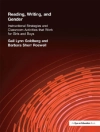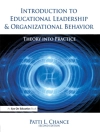How have you found the changes brought about by the new SEND Code of Practice: 0-25 years (2014)?
This book is the ultimate guide to making sure that you are not only meeting the requirements, but are improving outcomes for children and young people as well.
Written for all professionals working in the field, it covers:
· The broader Children and Families Act (2014)
· The role of the local authority
· Guidance on all the key changes that school leaders, SENCO′s, and staff are concerned about
· Case studies of settings across the 0-25 age range, including maintained schools, academies, free schools, and specialist and alternative provision.
Whether you work in education, health, or social care, or are training to do so, this book will genuinely improve your provision and practice for children and young people with SEND.
İçerik tablosu
PART ONE: Policy
How the SEN Framework Changed
The Implications of the Children and Families Act (2014)
The SEND Code of Practice: 0-25 years (2014)
PART TWO: Provision
Newer Patterns of Provision for SEN
Local Authorities Working With Schools to Increase Provision
Provision Across the Services and up to 25 Years
PART THREE: Practice
Meeting SEN in Mainstream
Meeting SEN in Specialist and Alternative Provision
Developing the Workforce
CONCLUSIONS
Yazar hakkında
Paul Williams was born in Newcastle upon Tyne, but has been a resident of London since becoming a teacher in 1973 and working in Inner London comprehensive schools until 1987. He was an advisory teacher with ILEA until 1989, after which he was a deputy head until 1992. He has been a head teacher since 1992 of two London special schools – most recently in Harrow. Paul is a national leader of education (NLE) and his school is a national support school (NSS). He is chair of the Harrow’s Alternative Provision Governing Body and vice-chair of Harrow Mencap. Paul has been a member of NAHT’s National Executive since 2006 and has chaired the Association’s SEND Committee since 2008. He has been involved with a wide range of national reviews, consultations and developments. He gave evidence to Lord Bew’s Independent review of Key Stage 2 testing, assessment and accountability, was involved in the review of the national curriculum, and has contributed to the All Party Parliamentary Group on Autism (APPGA). Paul attends regular meetings with Ofsted and the Df E, most recently in connection with how pupils with SEND are to be assessed under the new national curriculum, and the Independent review of standards for teaching assistants. This is the second book that Paul and Rona have co-authored, the first being How Successful Schools Work: The Impact of Innovative School Leadership, which was published in 2012.












